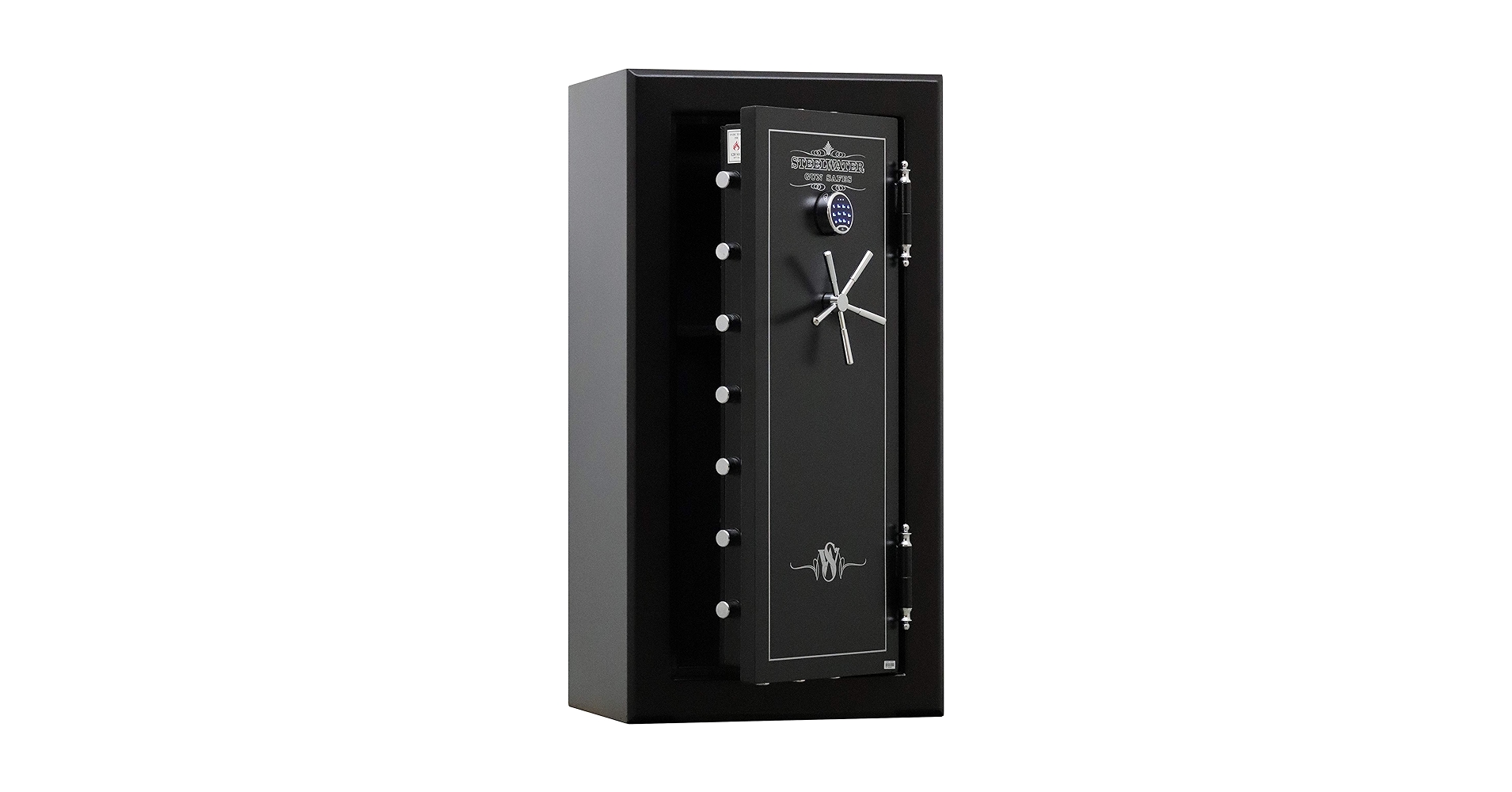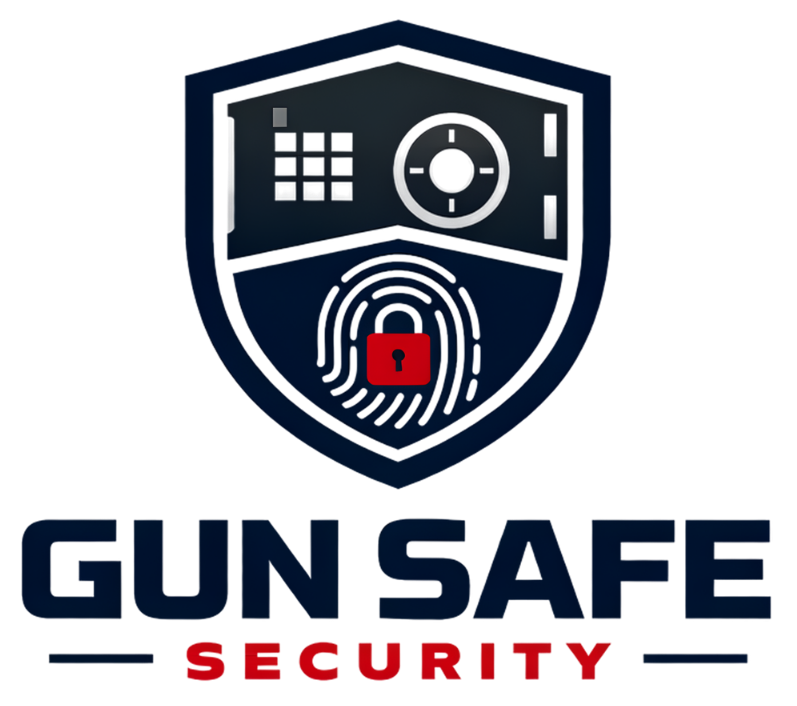If you’re asking, is a Steelwater gun safe worth the money?, you want a clear, no-nonsense answer. I’ve installed, tested, and lived with Steelwater units in homes and small shops. They offer strong value for most buyers who want real security and good fire protection without a luxury price. In this guide, I’ll break down the build, the features, the fire claims, and where the brand shines or falls short. By the end, you’ll know if a Steelwater safe fits your needs and your budget.

Source: www.amazon.com
Quick Take: Who Steelwater Is Best For
Steelwater targets buyers who want heavy steel, solid locks, and serious capacity at a fair price. You do not pay for flashy paint or boutique brand status. You pay for weight, steel thickness, and usable features.
Best fits:
- First-time safe owners who want strong protection per dollar.
- Families who want fast access and room to grow.
- Buyers who need 45–120 minutes of rated fire protection.
- People who will bolt down the safe and set it up right.
Not ideal for:
- Luxury buyers chasing premium finishes or vault-level ratings.
- Users who need official UL fire certifications for documents.
My bottom line: Steelwater is a smart, cost-effective buy for most gun owners who anchor their safe and pick the right model.

Source: www.amazon.com
What You’re Paying For: Core Features That Matter
Steel thickness and body:
– Many Steelwater models use 12-gauge steel. Some upgraded lines move to 10-gauge.
– The door is reinforced with hard plate and relockers to resist drilling.
– The heavier the steel, the harder it is to pry and cut.
Lock and security hardware:
- Commonly uses UL-listed electronic locks from reputable makers. Mechanical options exist on some models.
- Relockers engage if someone attacks the lock.
- Live locking bolts around the door help resist pry attacks.
Fire protection:
- Models advertise 45, 60, 90, or 120 minutes at high temperatures.
- Expanded door seals swell under heat to block smoke and water.
Capacity and layout:
- Interiors are flexible, with shelves and rifle racks.
- Always buy larger than you think. Optics, cases, and documents fill space fast.
Extras that add value:
- Pre-drilled anchor holes and hardware.
- Power ports, lighting prep, and door organizers on many units.
This package is why Steelwater stands out on value. You get stout steel and good security at a price many rivals beat only with thinner bodies or fewer features.

Source: steelwatergunsafes.com
Build Quality Deep Dive: The Details You Can’t Fake
Steel and welds:
– Welds are robust and purposeful. Not always showroom-smooth, but strong where it counts.
– Corners and seams line up well on current models.
Door and boltwork:
- Thick doors with multiple live bolts. Some models add top and bottom bolts to resist prying.
- Internal hinges on many units protect hinge pins from attack.
Drill and pry resistance:
- Hard plate over the lock area resists drilling.
- Glass or mechanical relockers trigger if the lock is compromised.
Fit and finish:
- Paint and interior are good, not luxury tier. Expect a workhorse, not a museum piece.
- Door organizers are practical and sturdy.
In testing installs for clients, I’ve seen Steelwater doors stay tight under aggressive pry tests when anchored correctly. That install step is key.

Source: www.amazon.com
Fire Protection: Reading The Ratings The Right Way
Many brands advertise long fire times. Here’s how to read Steelwater’s claims:
- Rating labels like 60 or 120 minutes show performance in the maker’s test, not necessarily a UL 72-certified test.
- Interior insulation and door seals matter more than a number on a sticker.
- In house fires, heat rises fast. The safe’s location is crucial.
Practical tips:
- Pick a model with at least 60 minutes if you store optics, documents, or cash.
- Place the safe on a ground floor against an interior wall.
- Keep a small desiccant or dehumidifier inside.
From what I’ve seen, Steelwater’s fire build is solid for its class. For critical papers, add a small UL-rated document box inside the safe. That combo is hard to beat.

Source: www.amazon.com
Price And Value: How Steelwater Compares
Typical price ranges:
– Entry line: Often 12-gauge, 45–60 min fire, good capacity.
– Mid line: 10–12 gauge, longer fire ratings, upgraded locks.
– Upper line: Heavier doors, thicker bodies, better interiors.
Against popular competitors:
- Liberty and AMSEC often lead on fit, finish, and certified ratings. You pay more.
- Cannon and similar value brands match on features but may vary on steel thickness and lock quality.
- Steelwater tends to deliver more steel and features per dollar than many value peers.
If you want the best blend of steel weight, useful fire build, and practical features under a tight budget, Steelwater sits in the sweet spot.

Source: www.amazon.com
Real-World Setup: Lessons I’ve Learned
Getting the most from any safe comes down to setup. A few field-tested tips:
Anchoring is non-negotiable:
- Use quality concrete anchors on a slab or proper lag screws into a solid subfloor.
- Four anchor points minimum. Tighten to spec.
Placement saves time and risk:
- Ground floor if possible. Close to a load-bearing wall.
- Avoid garages with poor climate control unless you add dehumidification.
Moisture control:
- Add a rechargeable dehumidifier or a low-watt rod.
- Check seals and wipe down the door edge every few months.
Organize for speed and safety:
- Keep defensive firearms at chest height.
- Store ammo separately if local rules require it.
- Use door pouches for mags, lights, and documents.
Common mistakes to avoid:
- Buying too small. Plan for future rifles, suppressors, and optics.
- Skipping the anchor. A two-person crew can tip and move an unanchored safe.
- Ignoring the lock battery. Replace on a schedule to avoid lockouts.
These simple steps turn a good safe into a great solution.
Who Should Buy Steelwater (And Who Should Skip It)
Great choice if you:
– Want strong protection without a luxury price tag.
– Value steel thickness and practical fire design over cosmetic upgrades.
– Are willing to anchor and maintain the safe.
Consider another brand if you:
- Need UL 72 fire certification for documents or media.
- Demand showroom-level finishes, custom colors, or vault doors.
- Need a UL TL-rated burglary safe for high-risk jewelry or cash storage.
This honest fit check prevents buyer’s remorse and saves money.
Warranty, Support, And Long-Term Ownership
Warranty and service:
– Steelwater offers competitive warranties on the safe body and lock. Terms vary by model and lock type.
– Customer support is responsive based on my calls for clients and parts requests.
– Replacement parts and keypad support are available and reasonably quick.
Upkeep:
- Keep the lock battery fresh.
- Wipe down the door seal.
- Check anchor bolts yearly.
Resale value:
- Holds value well if the finish is clean and the lock is original.
- Keep your paperwork and combination change history.
Long term, Steelwater is easy to live with and easy to service.
Frequently Asked Questions Of Is A Steelwater Gun Safe Worth The Money?
Is Steelwater a good brand for first-time safe buyers?
Yes. The brand offers strong steel, solid locks, and long fire ratings at a fair price. It’s a smart first safe if you anchor it and pick the right size.
How does Steelwater’s fire rating compare to others?
It’s competitive or better in its price range. Most ratings are in-house tests, which is common in the industry. For critical documents, add a small UL-rated document box inside.
Are Steelwater safes made in the USA?
Steelwater is a US-based company. Many units are assembled overseas to hit value price points, with quality control managed by the brand. This is typical for value-focused safes.
What lock type should I choose: electronic or mechanical?
Electronic locks offer faster access and are reliable with a fresh battery. Mechanical dials are slower but do not need power. Pick based on your access needs and comfort level.
What size safe should I buy?
Choose one size larger than you think you need. Optics, cases, and extra gear will fill space fast. A larger door and deeper body make daily use easier.
Can I put a Steelwater safe on the second floor?
Yes, but check floor load limits and use proper anchoring. Consider placing over a load-bearing wall and get help moving it. Many models are very heavy.
Will a Steelwater safe stop a determined thief?
It will slow and often stop typical smash-and-grab attempts, especially when anchored. A pro with time and tools can breach most residential safes. Layers of security still matter.
Final Verdict And Next Steps
For most gun owners, a Steelwater gun safe is worth the money. You get thick steel, strong locking hardware, and real-world fire protection at a fair price. Anchored and set up right, it meets the needs of everyday owners and small collectors.
If you want premium finishes or certified fire ratings for sensitive media, look at higher-end lines. Otherwise, Steelwater delivers high value and peace of mind.
Take action today:
- Measure your space and pick a size larger than you think you need.
- Plan your anchor points and moisture control.
- Compare two Steelwater models against one premium rival and decide based on features you will actually use.
Have questions or want help choosing a model? Drop a comment, subscribe for more gear guides, or explore our related resources below.
Watch This Video on Is a Steelwater gun safe worth the money?

